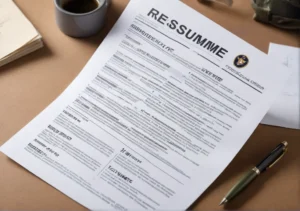We get it – you’re standing at the crossroads of decision, feeling the weight of your future career on your shoulders. Torn between the allure of adventure and the unknowns of military life, you’re wondering if becoming a Marine is the career equivalent of jumping into the deep end—exciting but potentially overwhelming.
By the end of this post, you’ll understand the ins and outs of a Marine Corps career— the good, the potentially challenging, and how it aligns with your personal goals.
Quick Takeaways:
- Joining the Marines offers personal development through discipline and team-oriented experiences, with leadership skills valuable in civilian life.
- The Marine Corps lifestyle includes regimented daily routines and strong camaraderie, amidst the challenges of frequent relocations and potential combat.
- Transitioning from the Marines to a civilian career is supported by programs that highlight transferable skills and provide job search resources.
Is a Career in the Marines Right for You?
Before you dive headfirst into what could be one of the most influential decisions of your life, it’s vital to take a long, hard look in the mirror and ask yourself if you’re cut out for life in the Marines. Compatibility with the Corps isn’t just about meeting the physical requirements—it’s about sharing core values like honor, courage, and commitment. So, are you ready for a challenge that will push you to your limits?
Take stock of your long-term career goals. Do you thrive in a highly structured environment? Are you prepared to adopt a lifestyle that demands discipline and dedication? Remember, joining the Marines isn’t just a job; it’s a way of life that extends well beyond the typical 9-to-5. It’s about being part of something greater than yourself.
Evaluate your willingness to embrace the rigors of boot camp, the ongoing physical training, and the potential for deployment in diverse environments around the globe. This self-assessment is a critical first step to determining if a career with the Marine Corps aligns with your personal aspirations and lifestyle.
What Are the Benefits of Joining the Marines?
Signing up with the Marines brings a slew of tangible benefits. Think beyond the paycheck; we’re talking about comprehensive healthcare and substantial housing allowances that can make a real difference in your quality of life. Education opportunities abound, from tuition assistance to the renowned GI Bill, paving the way for a bright future even outside of military service.
But let’s not gloss over the intangibles. The bonds forged in the fires of common struggle create a sense of camaraderie you’ll be hard-pressed to find elsewhere. It’s about waking up every day with a sense of purpose, knowing you’re part of a storied tradition of honor and pride.
The leadership skills and discipline honed in the Marines are transferable to any career path, positioning you as a standout candidate in the civilian job market. Countless Marines have leveraged their military experience into successful careers in business, public service, and various industries.
For a unique perspective, consider this: the opportunity to travel and experience cultures worldwide isn’t just about seeing new places. It’s about gaining a global awareness that can turn into a valuable professional asset in our increasingly interconnected world.
What Challenges Could I Face as a Marine?
Life as a Marine is no stroll on the beach. Let’s be real about the physical and mental demands. From grueling workouts to the mental toughness required to handle high-stress situations, the challenges you’ll face are designed to build resilience and character.
The possibility of frequent relocations means you’ll need to be ready to adapt quickly. Home might be a base stateside today and a forward operating position overseas tomorrow. For those with families, consider the impact on loved ones—it’s paramount to discuss and plan for the realities of military life with partners and relatives.
And then there’s the elephant in the room: combat. It’s not guaranteed, but it’s always a possibility. Preparing yourself mentally for that eventuality is something few careers will ever require.
Yet, in facing these trials, many find a sense of purpose and strength they never knew they had. Your mettle will be tested, and you’ll likely come out on the other side with an unshakeable confidence and a host of stories to tell.
One challenge that often gets overlooked is what happens after active duty. Transitioning back to civilian life can be as daunting as the initial adjustment to military life. However, the Marine Corps provides transition and support services to make this shift smoother, recognizing the importance of continued success for its service members beyond their time in uniform.
Remember, a career in the Marines is as rewarding as it is demanding. It’s a path of immense personal and professional growth that only the truly committed should tread. Embrace the challenge, and you could find yourself part of an elite group that can proudly say: “The Few. The Proud. The Marines.”
How Will My Life Change in the Marines?
Joining the Marines is a bit like signing up for a transformative journey. It’s more than a job; it’s a lifestyle that shapes your character, your friendships, and your daily routine. Picture the crack of dawn – this is likely when your day will begin. You’ll rise, often before the sun does, to the sound of a drill instructor’s voice or your unit’s wake-up call.
A Typical Day: Mornings usually start with physical conditioning – push-ups, sit-ups, and running are the appetizers for your day. Breakfast follows, which might be the most tranquil part of your day. After your meal, it’s time to get down to business. Depending on your MOS, you could be repairing aircraft, participating in drills, heading out for tactical training, or conducting maintenance checks on equipment.
The day-to-day life of a Marine is regimented and structured, with activities planned down to the minute. It’s a world where punctuality and precision are not just appreciated—they’re expected.
Culture of Brotherhood and Respect: One thing is for sure, you’ll never feel alone. The sense of brotherhood and camaraderie in the Marines is palpable. You’ll train with your fellow Marines, eat with them, and support each other through challenges. This unique bond is what many veterans miss the most after leaving the service.
Roles and Responsibilities: Your role could vary vastly – from intelligence to aviation, from logistics to front-line infantry. Each MOS comes with its own set of tasks and challenges, but what remains constant is the Marine Corps ethos embodied in every Marine.
Here’s a unique perspective: No matter your role, you’ll be trained to think on your feet. While the schedule is strict, you’re also taught to be adaptable – because in the field, no plan survives contact with the enemy. And it’s this skill that often goes unnoticed but is crucial both in the military and civilian life.
Can I Build a Civilian Career After the Marines?
Absolutely, and this is critical. Your career in the Marines can be the launching pad for your next chapter in the civilian workforce. The transition from military to civilian life can be daunting, but remember this – you’re not alone.
Transition Programs: The military has several transition programs designed to ease this process. The Transition Assistance Program (TAP) is a great resource, offering classes on job searching, resume writing, and interview preparation. Take advantage of resources like Military OneSource, which offers personalized support to help you navigate your post-military career.
Skills for the Civilian Sector: Think about the valuable skills you’ve honed in the Marines – leadership, discipline, resilience, and the ability to work as part of a team. These are traits any employer would value. Moreover, specific technical skills acquired in various MOS can directly translate to civilian jobs, such as aviation mechanics, IT specialists, or logistics coordinators.
Here’s an example that hits home: A former Marine who served as a logistics specialist used their experience to seamlessly transition into a supply chain management role for a major corporation. Their understanding of logistical complexities and inventory management, coupled with their adaptability, made them a standout candidate.
To stand out, inform potential employers about how your military experience can translate to meeting their needs. Emphasize not just the hard skills learned but also soft skills like problem-solving and strategic thinking.
Be proactive in networking and connecting with veteran groups or organizations that can help you in your search. LinkedIn can be a gold mine for connecting with other veterans who’ve successfully transitioned.
In essence, your time in the Marines equips you with a toolkit brimming with valuable skills and traits. It’s up to you to showcase them effectively and carve out your path in the civilian world. And remember, you’ve already mastered one of the most challenging jobs out there – everything else might just seem like a walk in the park.






